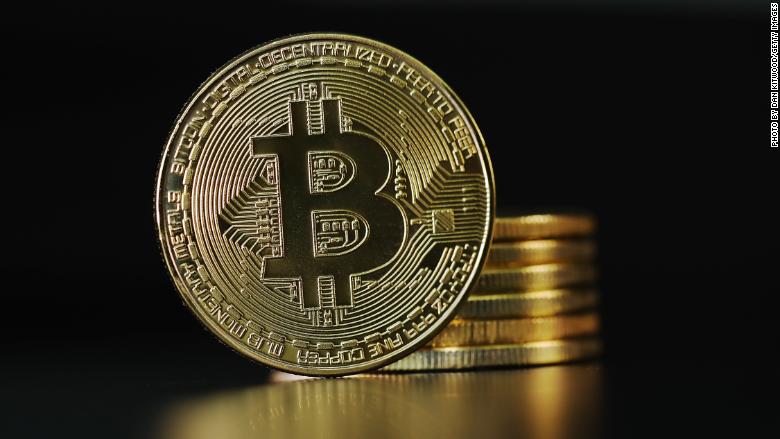Bitcoin Just Surged on Futures Trading. Here’s How That Actually Works

With a bang and several bumps, the Chicago Board Options Exchange launched bitcoin futures to trading over the weekend.
Upon its debut Sunday, bitcoin futures went red hot, forcing the CBOE to put to halts in a bid to calm the raging market. The price of the underlying asset itself, bitcoin, surged as much as 26%.
Considering that the Chicago Merchantile Exchange is planning to launch its own bitcoin futures Dec. 18, and the fact the futures markets can exceed the market for their underlying asset, here’s what yo know about bitcoin futures.
What are futures?
Futures are an agreement to buy and sell a certain product at a certain date. As it pertains to bitcoin, it’s one way for investors wary of unregulated bitcoin exchanges to speculate on the price of bitcoin at a future time in a setting that is being overseen by a regulator, the Commodities Futures and Trade Commission, in an already established exchange.
But there’s another use for futures aside from pure speculation: futures may also be used to control risk in a portfolio, especially when its underlying asset is volatile in price.
Take oil for example, which is just beginning to recover after falling below $ 30 a barrel in 2016, but now trades just shy of $ 60. Given that oil makes up a major chunk of expenses for airlines, it takes no Einstein to realize today’s price would be considerably less desirable than 2016’s. So it has become common for companies such as Delta and Southwest Airlines to lock in low prices for delivery in future months.
Of course, on the flip side, airlines have also been burned — at times badly — by betting that the price of oil would be greater than what it turned out to be. Delta for instance took a $ 2.3 billion hit in 2015 as oil prices slid more than they had expected that year.
Similarly, bitcoin futures may be used in such a manner by bitcoin owners.
Bitcoin’s price rests at about $ 16,600 as of Monday afternoon. In an example given by the CBOE, a bitcoin owner thinks that in the short term, bitcoin prices will fall. So how can he or she protect himself? Well, by selling, or shorting, bitcoin futures. Say he or she decides to sell a January futures contract now priced at about $ 17,800, and repurchasing the contract at a date closer to when the contract settles, at say $ 16,000 (The price of the actual asset and its future contract tends to converge at the time of delivery). In doing so, he or she makes a $ 1,800 profit on his futures bet, even though the value of his bitcoin has fallen in value by about $ 600 in the same period.
How are they trading on the CBOE?
The CBOE currently lists three bitcoin futures, each expiring in January, February, and March, with the final settlement value of the contracts determined by the price of bitcoin on exchange Gemini. Currently, bitcoin prices on the exchange trade at about $ 16,600. Each contract covers one bitcoin.
Bitcoin futures also have much higher margin rates — the amount a trader has to set aside as collateral for potential losses — than typical futures contracts. The CBOE has a margin rate of 44%, likely owing to how volatile bitcoin can be. So for January contracts, about $ 7,832 would have to be set aside.
Moreover, the contracts are cash settled, meaning investors will receive their final payment in cash rather than bitcoin. That also means that the CBOE doesn’t have to deal with the headache of setting up its own bitcoin wallet.
The bitcoin futures symbol used by CBOE is “XBT.”
How will it affect the price of bitcoin?
For starters, the introduction of bitcoin futures has already had a upward affect on the “spot” or bitcoin price. With the CBOE, CME, Cantor Fitzgerald and other well-worn Wall Street names saying they plan to get in on the game, bitcoin believers are more convinced than ever that the cryptocurrency is here to stay. Meanwhile, the fear of missing out has also induced new faces to enter the arena, with major bitcoin exchange Coinbase seeing about 300,000 more users between Nov. 22 to Nov. 26, according to Bloomberg.
Even more demand for bitcoin futures could also serve to push up bitcoin prices, as it would be a sign that some more established investors may be growing bullish in bitcoin.
It’s hard to say for sure how bitcoin prices will be impacted by the price of futures, though investors generally should expect to see futures prices come together when the contract settle.
It’s also thought that shorting bitcoin, which several major financial powerhouses such as J.P. Morgan’s Jamie Dimon have dubbed a “bubble.” would be easier through bitcoin futures. But so far, given the massive demand for bitcoin futures in the few days they have been trading, it’s still unclear how that theory will pan out.

